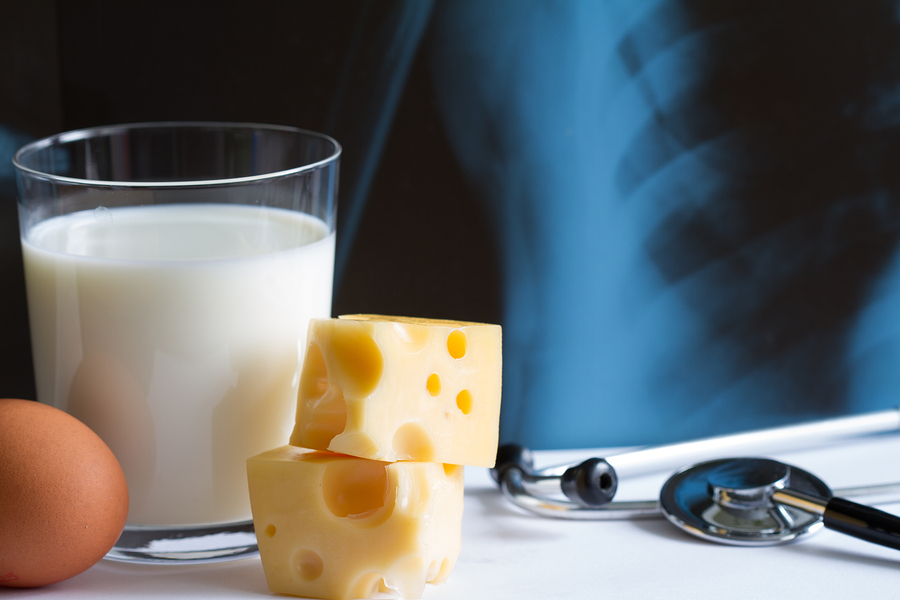Stronger bones after 50: How to ensure you’re getting enough calcium
As we age, keeping our bones strong becomes a priority
After the age of 50, bone density tends to decline, increasing the risk of osteoporosis and fractures.
Calcium, along with vitamin D, plays a crucial role in maintaining bone strength, but many adults don’t get enough of this essential mineral. The good news? With a few tweaks to your daily routine and a little awareness, you can give your bones the support they need.
Why calcium matters after 50
Calcium is the building block of bones and teeth. Throughout life, your body breaks down and rebuilds bone tissue, but after menopause in women and as men age, the rate of bone loss accelerates. If your calcium intake isn’t sufficient, your body draws calcium from your bones, weakening them over time. This can lead to conditions like osteoporosis, which makes bones brittle and more prone to fractures.
Recommended Daily Calcium Intake:
-
Women over 50: 1,200 mg per day
-
Men 51-70: 1,000 mg per day
-
Men over 70: 1,200 mg per day
Top calcium-rich foods to include in your diet

Getting calcium from food is the most effective way to ensure absorption. Here’s a list of calcium-rich options to add to your plate:
✅ Dairy Products – Milk, yogurt, and cheese are top sources of calcium. Opt for low-fat or non-fat options to keep calories in check while maintaining bone health.
✅ Leafy Green Vegetables – Spinach, kale, bok choy, broccoli and spring greens are loaded with calcium. However, spinach contains oxalates, which can interfere with calcium absorption, so it’s best not to rely solely on spinach for your calcium needs.
✅ Fortified Foods – Many plant-based milk alternatives (almond, soy, oat), orange juice, and cereals are fortified with calcium. Check labels to make sure you’re getting an adequate amount.
✅ Fish with Edible Bones – Sardines and canned salmon (with bones) are rich in calcium and omega-3 fatty acids, providing a double boost for bone health.
✅ Nuts and Seeds – Almonds, chia seeds, and sesame seeds contain moderate amounts of calcium. They’re a great addition to salads or as a snack.
✅ Legumes and Beans – White beans, chickpeas, and lentils provide not only calcium but also magnesium, which helps with calcium absorption.
Calcium supplements: Do you need them?
If you struggle to get enough calcium through food alone, supplements can help fill the gap. However, they should be used carefully, as excess calcium from supplements may increase the risk of kidney stones or cardiovascular issues.
Tips for supplementing safely:
-
Choose calcium citrate if you have low stomach acid, as it’s easier to absorb.
-
Split doses if taking more than 500 mg at a time, as the body absorbs smaller amounts more effectively.
-
Pair calcium with vitamin D to enhance absorption.
Don’t forget vitamin D!

Even if you’re getting enough calcium, your body needs vitamin D to absorb it properly. As we age, our skin becomes less efficient at producing vitamin D from sunlight, so dietary sources and supplements may be necessary.
Sources of Vitamin D:
-
Fatty fish like salmon and mackerel
-
Egg yolks
-
Fortified foods like milk and cereal
-
Moderate sun exposure (10-15 minutes a few times per week)
Consider asking your doctor about a vitamin D supplement if your levels are low.
Lifestyle habits that support bone health

In addition to calcium and vitamin D, maintaining an active lifestyle plays a key role in preventing bone loss. Incorporate these habits to boost bone density:
🏃♂️ Weight-Bearing Exercise – Walking, jogging, dancing, and resistance training strengthen bones by encouraging new bone growth.
🧘 Balance and Flexibility Exercises – Yoga and Tai Chi improve balance and flexibility, reducing the risk of falls and fractures.
🚭 Avoid Smoking and Limit Alcohol – Both can accelerate bone loss and reduce calcium absorption.
When to talk to your doctor
If you have concerns about your bone health or are unsure if you’re getting enough calcium, it’s a good idea to discuss it with your healthcare provider. They may recommend a bone density test (DEXA scan) to assess your bone strength and provide personalised advice on supplements or lifestyle changes.
Final Thoughts: Build Stronger Bones for a Healthier Future
Taking steps now to ensure you’re getting enough calcium can make a big difference in your bone health as you age. By focusing on a balanced diet rich in calcium and vitamin D, staying active, and making informed choices about supplements, you’ll be setting yourself up for stronger bones and a more vibrant, fracture-free future.
Remember: It’s never too late to start building healthier bones!



















